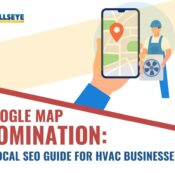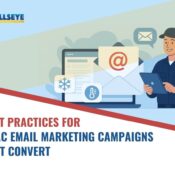
Smart Marketing Moves – Stay Ahead in the Competitive Synthetic Turf Industry!
Stay ahead in the competitive synthetic turf industry with smart marketing strategies. Focus on turf industry marketing, leverage synthetic turf SEO, and utilize digital advertising to generate high-quality synthetic turf leads and drive business growth through effective branding and sales tactics.
Call Now For The Expert Digital Marketing Solutions: 561-277-0148
Introduction: The Importance of Turf Industry Marketing in a Competitive Market
Maintaining an advantage in the turf business marketing game is more important than ever in the current fast-paced and cutthroat environment. Businesses in the turf industry must use clever, creative marketing techniques to draw clients and outperform their rivals as the demand for synthetic turf rises because of its minimal maintenance requirements, sustainability, and aesthetic appeal. Having a successful turf-specific marketing plan will influence how well your brand connects with potential customers, regardless of how big or small your company is. This blog dives into the essential marketing tactics and strategies every turf company needs to implement to stay ahead in a highly competitive market.
Promoting items is only one aspect of effective turf sector marketing; other strategies include educating customers, highlighting special features, and gradually gaining their trust. Let’s now explore some of the most effective marketing techniques that will help you outperform the competition and take control of the synthetic grass market.
The Turf Market: Key Trends Shaping the Industry
Before diving into marketing strategies, it’s crucial to understand the current turf market trends that are shaping consumer behavior and business decisions. The synthetic turf industry has experienced rapid growth due to its versatility, sustainability, and environmental benefits.
Key turf market trends include the increasing adoption of artificial turf in both residential and commercial landscapes, the shift towards more eco-friendly alternatives to traditional lawns, and the rise in sports field installations. The demand for low-maintenance, water-efficient lawns has soared, especially in urban areas where real grass isn’t always a feasible option.
As these trends continue to shape the market, turf businesses need to align their marketing efforts with consumer needs. Offering solutions like synthetic turf for golf courses, playgrounds, or pet-friendly lawns can set you apart from competitors who only focus on one type of turf application. A deep understanding of the market helps in crafting targeted marketing campaigns that resonate with specific consumer segments.
Turf Industry Marketing: Building a Solid Online Presence
The first step in any successful turf industry marketing strategy is to build a solid online presence. The digital landscape offers vast opportunities for turf businesses to engage with potential clients, share their expertise, and generate leads.
Incorporating synthetic turf SEO is key to making sure your website shows up in search engine results when potential customers are looking for turf solutions. By optimizing your site with relevant keywords, including geo-targeted keywords (like “artificial grass in [City]”), you can improve your organic search rankings. The higher your ranking, the more visible you are to customers who are actively searching for turf solutions.
An optimized website serves as the foundation for other digital marketing strategies such as content marketing, email campaigns, and social media efforts. Ensure that your website offers informative content, a user-friendly design, and clear calls to action (CTAs) to guide visitors toward becoming customers. Incorporate blog posts, case studies, and testimonials to build trust and establish authority in the industry.
Artificial Grass Branding: Creating a Unique Identity
In a market flooded with turf options, standing out through artificial grass branding is crucial. Your brand is not just your logo; it’s your story, values, and mission to customers. When consumers consider your business, they want to know why they should choose you over competitors.
Start by crafting a clear and compelling brand message that highlights your unique selling points. For example, if you focus on sustainability, emphasize how your products contribute to water conservation and environmental friendliness. If you’re known for excellent customer service, make sure that message resonates throughout your marketing channels.
Your branding should also reflect the emotions associated with artificial grass—how it enhances lifestyles, saves time, and provides year-round beauty. Whether you’re targeting homeowners, sports teams, or commercial property owners, tailoring your message to each audience can significantly boost your brand’s effectiveness.
Visual branding is equally important. Make sure your brand colors, fonts, and overall style are consistent across all marketing channels, whether it’s your website, social media, or print materials. A cohesive and professional look helps build credibility and trust with potential customers.
Leveraging Digital Advertising for Turf Business Growth
In the digital age, turf digital advertising has become a cornerstone of business growth. Whether through pay-per-click (PPC) campaigns, social media ads, or display banners, digital advertising offers turf businesses the ability to reach a vast and diverse audience.
Google Ads and social media platforms like Facebook, Instagram, and LinkedIn provide highly targeted advertising options. For instance, with synthetic turf leads, you can use targeting options such as location, demographics, interests, and behaviors to ensure your ads reach people actively looking for turf solutions.
While paid ads are an essential component of any digital marketing strategy, they should be part of a broader, integrated approach. Combining paid campaigns with SEO, content marketing, and social media efforts creates a holistic marketing plan that drives more qualified traffic to your website and ultimately leads to increased conversions.
The Power of Artificial Grass Advertising: Reaching the Right Audience
Effective artificial grass advertising requires understanding your target audience and delivering the right message through the right channels. Whether it’s promoting artificial grass for playgrounds, sports fields, or residential lawns, knowing who you are speaking to is key.
For instance, when advertising to homeowners, focus on the low maintenance, aesthetic benefits, and cost-effectiveness of artificial grass. When marketing to businesses or municipalities, highlight durability, eco-friendliness, and long-term cost savings. Your message should align with their pain points and offer clear solutions.
Content marketing plays a significant role in artificial grass advertising. Create educational blog posts, videos, and infographics that show the benefits of synthetic turf. Highlight case studies and testimonials to establish trust. By positioning your brand as an expert in the field, you can gain the trust of your audience and convert them into loyal customers.
Turf Sales Strategies: Converting Leads into Loyal Customers
While generating synthetic turf leads is essential, converting those leads into actual sales is what matters most. Turf sales strategies should focus on building strong relationships with leads and providing them with value at every touchpoint.
One effective approach is implementing a consultative sales process where you listen to your client’s needs and offer tailored solutions. Take the time to educate your prospects about the advantages of synthetic turf and address any concerns they may have, whether about installation, durability, or maintenance.
Customer testimonials and case studies are powerful tools to showcase the effectiveness of your products. Offering free estimates, site assessments, or samples can also help prospects feel more confident about making a purchase.
Finally, following up after the initial consultation is crucial. A timely follow-up email or phone call can make all the difference in closing a sale.
Generating High-Quality Synthetic Turf Leads: The Key to Consistent Sales
Generating synthetic turf leads is a continuous process. To ensure consistent sales, businesses must create strategies that attract high-quality leads—people who are not just interested but are ready to make a purchase.
A combination of SEO efforts and paid advertising can help generate qualified leads. For instance, by optimizing your website with relevant keywords, you can ensure that potential customers find your business when searching for turf solutions. Paid ads on Google or social media can also provide a quick and targeted way to attract leads. However, lead nurturing is just as important. Use email campaigns, newsletters, and retargeting ads to stay in front of prospects who haven’t made a decision yet.
Artificial Lawn Marketing: Tactics to Stand Out in a Saturated Market
With the increasing popularity of synthetic turf, standing out in the crowded market requires innovative artificial lawn marketing tactics. Differentiating your business from competitors can be achieved through unique selling points, such as superior product quality, exceptional customer service, or a special focus on eco-friendly products.
Content marketing is a great way to set yourself apart. Educate potential customers on the environmental benefits of artificial lawns and how they help conserve water, reduce lawn care maintenance costs, and provide a more sustainable solution.
Additionally, collaborating with influencers, industry experts, or landscaping professionals can increase your credibility and exposure.
Turf Industry Marketing Strategies for Long-Term Success
To thrive in the turf industry marketing landscape, it’s essential to implement long-term strategies that not only help generate leads but also build lasting relationships with customers. One effective way to achieve this is through artificial grass branding and customer loyalty programs.
Consider implementing customer referral programs or creating a VIP club that offers exclusive discounts or perks for repeat business. Social proof, such as customer reviews and success stories, can also play a significant role in convincing new customers to trust your business.
Conclusion: Adapt, Evolve, and Thrive in the Turf Industry
Smart marketing moves are essential for staying ahead in the competitive synthetic turf industry. By understanding turf market trends, leveraging digital advertising, refining your artificial grass branding, and using strategic sales tactics, your turf business can thrive and build a loyal customer base.
The key to long-term success lies in continuously adapting to changes in the market, evolving your marketing strategies, and being proactive in engaging with your audience. With the right approach, you’ll not only stay ahead of the competition but also drive sustained growth and profitability.




